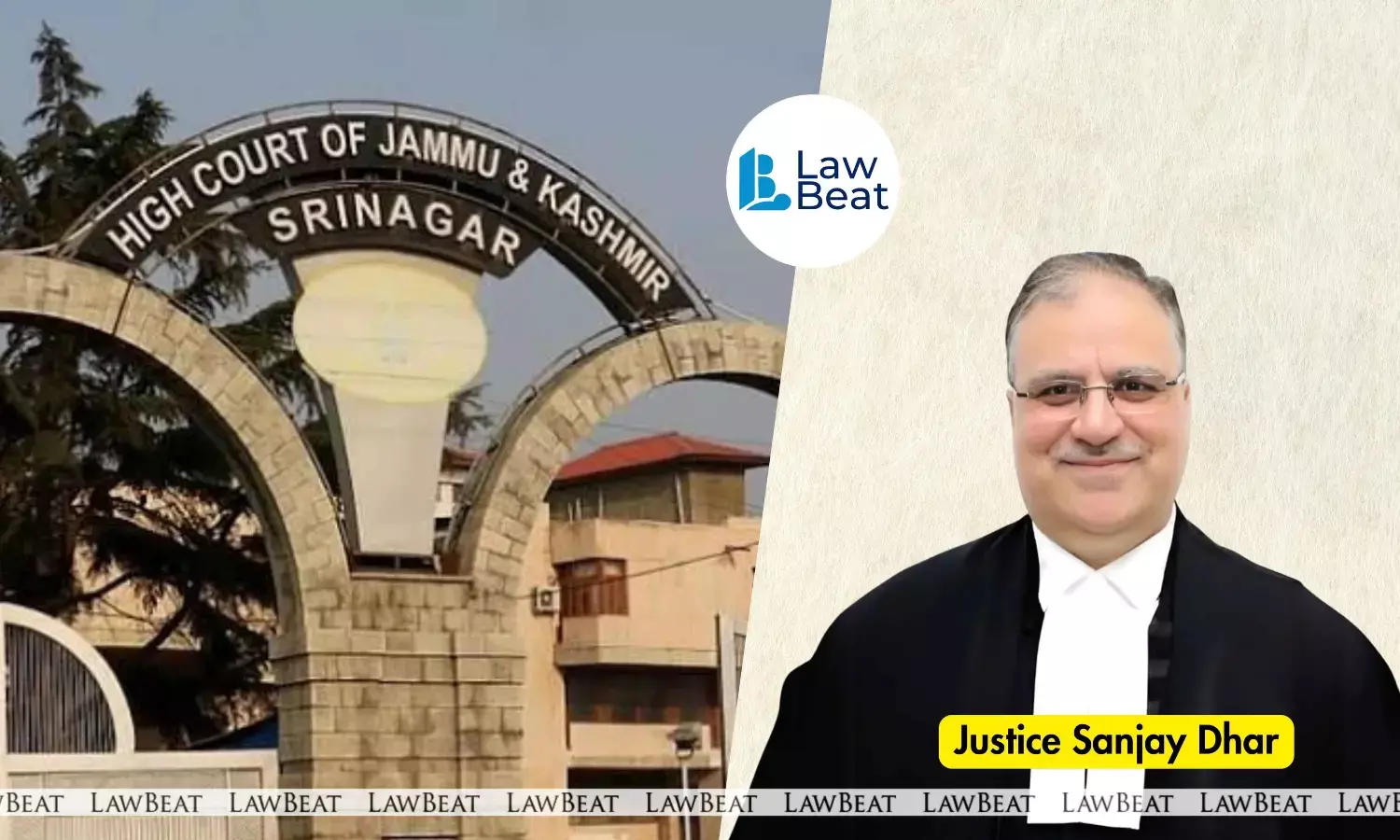Mere Medical Evidence Cannot Prove Guilt: J&K High Court Quashes Charges Against Man Accused Of Kidnapping & Rape

The Jammu and Kashmir and Ladakh High Court has quashed charges against a man accused of kidnapping and sexually assaulting two minor girls, ruling that “mere medical evidence of sexual intercourse is not enough to establish guilt under POCSO or rape charges.”
The Single Bench of Justice Sanjay Dhar made these observations while discharging Basit Bashir, against whom a Special POCSO Court had previously framed charges under Section 376 of the IPC and Section 4 of the Protection of Children from Sexual Offences (POCSO) Act.
The High Court held that the trial court had failed to appreciate that there was no direct or circumstantial evidence tying Bashir to the alleged offences.
The ruling underscores a key principle in criminal law, that suspicion, however strong, cannot substitute for proof of guilt, and framing charges against a person must be based on material that discloses “grave suspicion supported by evidence.”
Case Background
The incident traces back to a first information report (FIR) lodged by the father of a 14-year-old girl, alleging that his daughter and her friend were missing and suspected to have been sexually assaulted. The police investigated and alleged that Bashir had enticed the two girls into his vehicle, kidnapped them, and committed penetrative sexual assault upon them.
In March 2022, the trial court framed charges against Bashir under Section 376 IPC and Section 4 of the POCSO Act. Aggrieved by this order, Bashir challenged it in the High Court, arguing that there was no direct or circumstantial material tying him to the alleged offences and that the trial court failed to appreciate the principle that charges should be supported by sufficient grounds.
Key Observations
Justice Dhar carefully examined the statements of the two minor girls under Section 164 of the Criminal Procedure Code (CrPC). The girls stated that they voluntarily left their homes to visit a nearby market and later boarded Bashir’s vehicle due to a lack of available transport. Importantly, the minors expressly denied any coercion or inducement by Bashir.
“The girls boarded the vehicle of their own volition, uninfluenced by any promise or allurement from the petitioner. Their statements contradict the prosecution’s claim of kidnapping under Section 363 IPC.”
The Court also took into account the testimony of the family members, noting that none supported the view that the girls were abducted against their will. Furthermore, the medical reports, while confirming that the girls were sexually active, did not, in and of themselves, connect Bashir to the alleged offences. Importantly, no forensic traces (such as spermatozoa or DNA) were recovered to implicate him in the alleged rape.
Justice Dhar held, “The medical opinion, without corroborative material, cannot be a basis to frame charges.” He added, “The statements of the victims under Section 164 CrPC do not reflect any coercion or rape by the petitioner.”
Precedents Cited
The Court drew from Supreme Court judgments, including Union of India v. Prafulla Kumar Samal, Dilawar Balu Kurane, and Sajjan Kumar v. CBI, which prohibit framing charges in the absence of a strong suspicion supported by material on record. The trial court, in this context, was expected to act judiciously and not simply forward the trial without proper consideration of the material placed before it.
Final Order
The High Court held that the trial court had acted as a “post office” for the investigating agency and failed to appreciate the gaps in the evidence. The Court quashed the charges against Bashir, discharged him, and dismissed the challan.
“Therefore, even if the material collected by the investigating agency during the investigation were to remain unrebutted, the same is not sufficient to raise a grave suspicion against the petitioner," the Court said.
The Bench held, "For the foregoing reasons, the instant petition is allowed and the impugned order dated 09.03.2022 passed by the learned Special Judge (POCSO Cases) (Principal Sessions Judge) Srinagar, whereby charges have been framed against the petitioner/accused, is set aside. The petitioner is discharged and the challan against him shall stand dismissed."
Case Title: Basit Bashir v. UT of J&K
